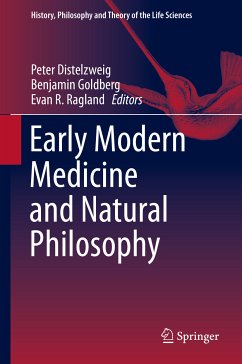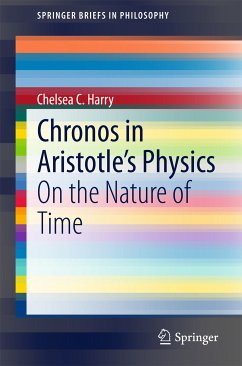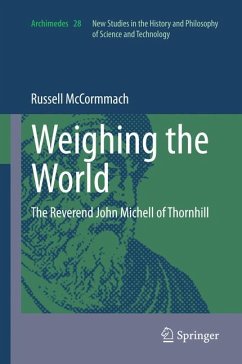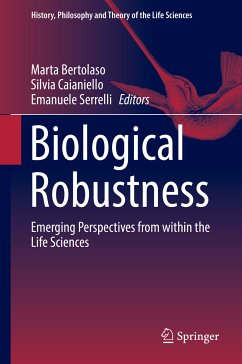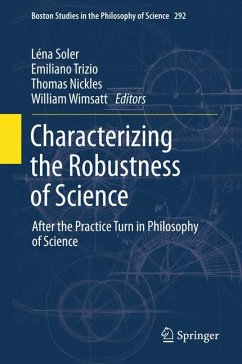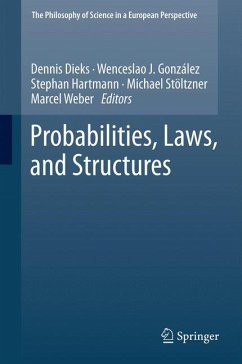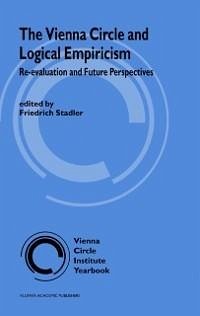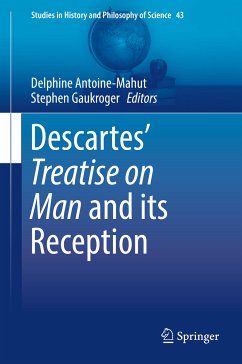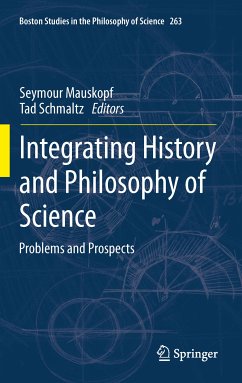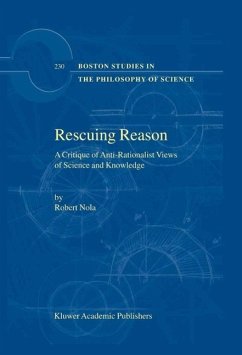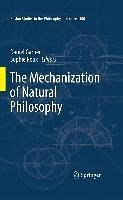
The Mechanization of Natural Philosophy (eBook, PDF)
Versandkostenfrei!
Sofort per Download lieferbar
72,95 €
inkl. MwSt.
Weitere Ausgaben:

PAYBACK Punkte
36 °P sammeln!
The Mechanisation of Natural Philosophy is devoted to various aspects of the transformation of natural philosophy during the 16th and 17th centuries that is usually described as mechanical philosophy .Drawing the border between the old Aristotelianism and the « new » mechanical philosophy faces historians with a delicate task, if not an impossible mission. There were many natural philosophers who actually crossed the border between the two worlds, and, inside each of these worlds, there was a vast spectrum of doctrines, arguments and intellectual practices. The expression mechanical philosop...
The Mechanisation of Natural Philosophy is devoted to various aspects of the transformation of natural philosophy during the 16th and 17th centuries that is usually described as mechanical philosophy .
Drawing the border between the old Aristotelianism and the « new » mechanical philosophy faces historians with a delicate task, if not an impossible mission. There were many natural philosophers who actually crossed the border between the two worlds, and, inside each of these worlds, there was a vast spectrum of doctrines, arguments and intellectual practices. The expression mechanical philosophy is burdened with ambiguities. It may refer to at least three different enterprises: a description of nature in mathematical terms; the comparison of natural phenomena to existing or imaginary machines; the use in natural philosophy of mechanical analogies, i.e. analogies conceived in terms of matter and motion alone.However mechanical philosophy is defined, its ambition was greater than its real successes. There were few mathematisations of phenomena. The machines of mechanical philosophers were not only imaginary, but had little to do with the machines of mecanicians. In most of the natural sciences, analogies in terms of matter and motion alone failed to provide satisfactory accounts of phenomena.By the same authors: Mechanics and Natural Philosophy before the Scientific Revolution (Boston Studies in the Philosophy of Science 254).
Drawing the border between the old Aristotelianism and the « new » mechanical philosophy faces historians with a delicate task, if not an impossible mission. There were many natural philosophers who actually crossed the border between the two worlds, and, inside each of these worlds, there was a vast spectrum of doctrines, arguments and intellectual practices. The expression mechanical philosophy is burdened with ambiguities. It may refer to at least three different enterprises: a description of nature in mathematical terms; the comparison of natural phenomena to existing or imaginary machines; the use in natural philosophy of mechanical analogies, i.e. analogies conceived in terms of matter and motion alone.However mechanical philosophy is defined, its ambition was greater than its real successes. There were few mathematisations of phenomena. The machines of mechanical philosophers were not only imaginary, but had little to do with the machines of mecanicians. In most of the natural sciences, analogies in terms of matter and motion alone failed to provide satisfactory accounts of phenomena.By the same authors: Mechanics and Natural Philosophy before the Scientific Revolution (Boston Studies in the Philosophy of Science 254).
Dieser Download kann aus rechtlichen Gründen nur mit Rechnungsadresse in A, B, BG, CY, CZ, D, DK, EW, E, FIN, F, GR, HR, H, IRL, I, LT, L, LR, M, NL, PL, P, R, S, SLO, SK ausgeliefert werden.




